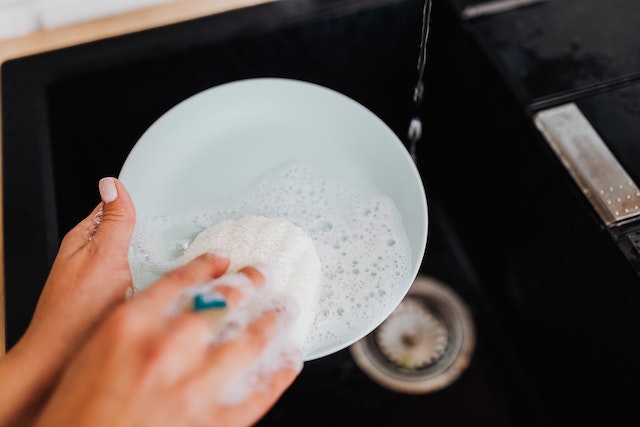Housewife’s eczema, also known as hand eczema or dishpan hands, can be a pesky problem when you’re constantly dealing with household chores.
Those dry, itchy, and irritated hands can really put a damper on your daily routine. But fear not!
In this blog post, we’ll break down why it happens and how to treat it in a way that’s easy to understand.
Why Does Housewife’s Eczema Happen?
1. Frequent Hand Washing
When you wash your hands too often, especially with hot water and strong soaps, it can zap away the natural oils that protect your skin, leaving it dry and unhappy.
2. Exposure to Chemicals
Many cleaning products and detergents contain harsh chemicals that can be tough on your skin. Using them without gloves exposes your skin to these irritants.
3. Friction
All that scrubbing and rubbing while doing dishes or cleaning can also contribute to the development of eczema.
How to Treat Housewife’s Eczema?
Now, let’s get to the good part—how to tackle housewife’s eczema.
1. Protect Your Hands
Whenever you’re diving into household tasks involving water or chemicals, grab some protective gloves. These act like a shield, keeping your skin safe from irritants.
2. Use Gentle Soaps
Opt for mild, fragrance-free soaps when you wash your hands. And try to use lukewarm water instead of hot water, which can be harsh on your skin.
3. Moisturize, Moisturize, Moisturize
Apply a good quality, fragrance-free moisturizer to your hands regularly, especially after washing them. This helps your skin stay hydrated and happy.
4. Avoid Triggering Products
Keep an eye out for products or activities that make your eczema worse. You might need to switch to gentler cleaning products or find alternative ways to get your chores done.
5. Over-the-Counter Creams
When the itch gets unbearable, reach for over-the-counter hydrocortisone creams or ointments. Just follow the instructions on the label and consult a doctor if your symptoms persist.
6. Prescription Medications
In severe cases, your doctor might prescribe stronger medications, like topical steroids or immunosuppressive creams, to manage your hand eczema.
7. Dermatologist Consultation
If your eczema doesn’t improve with your DIY care or over-the-counter treatments, it’s time to see a dermatologist. They can give you a more accurate diagnosis and recommend tailored treatments.
Remember, dealing with housewife’s eczema takes time and patience. But by following these steps to protect and care for your hands, you can ease those annoying symptoms and prevent future flare-ups.
So, roll up your sleeves, put on those gloves, and get ready to conquer housework without the itch!

